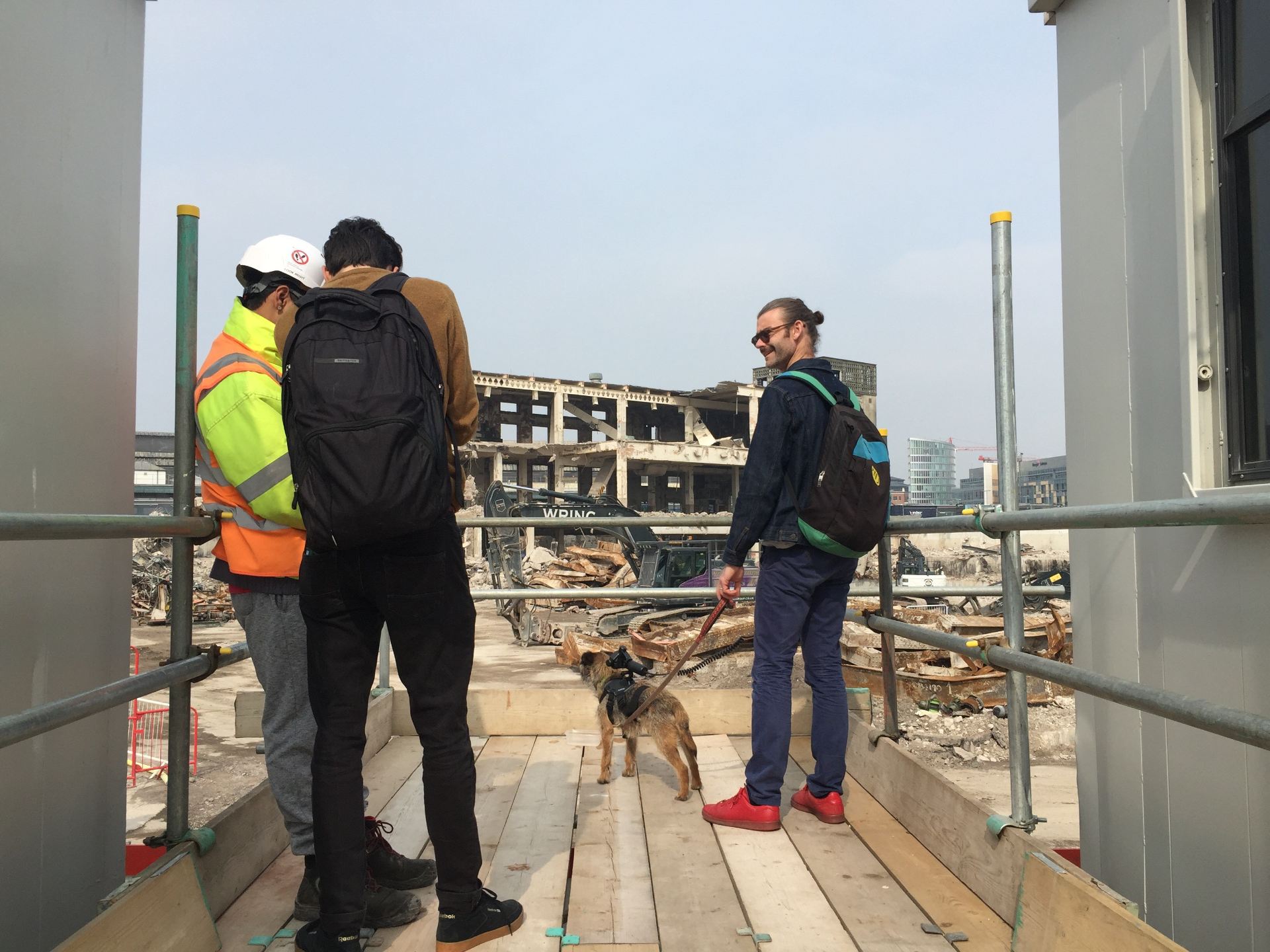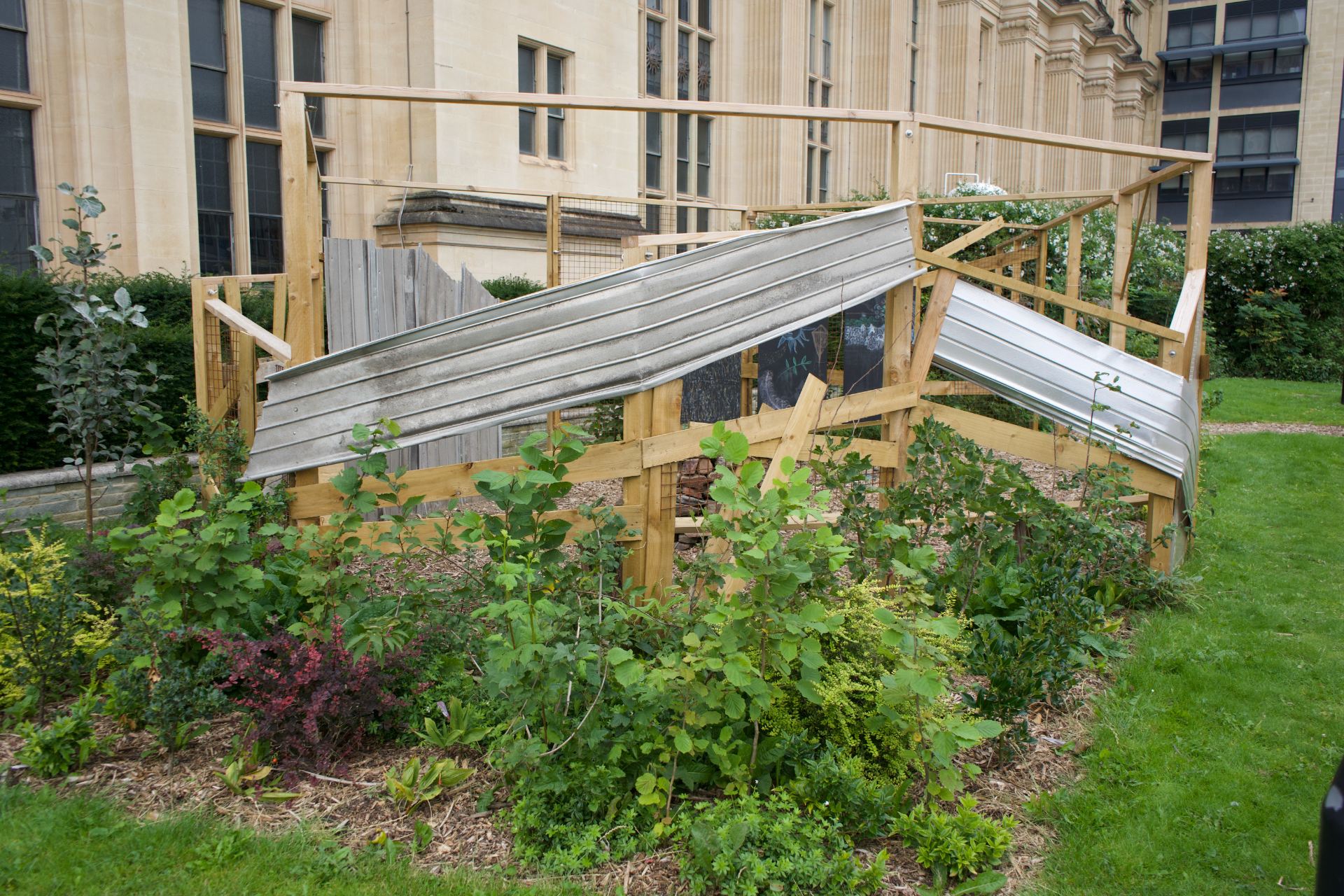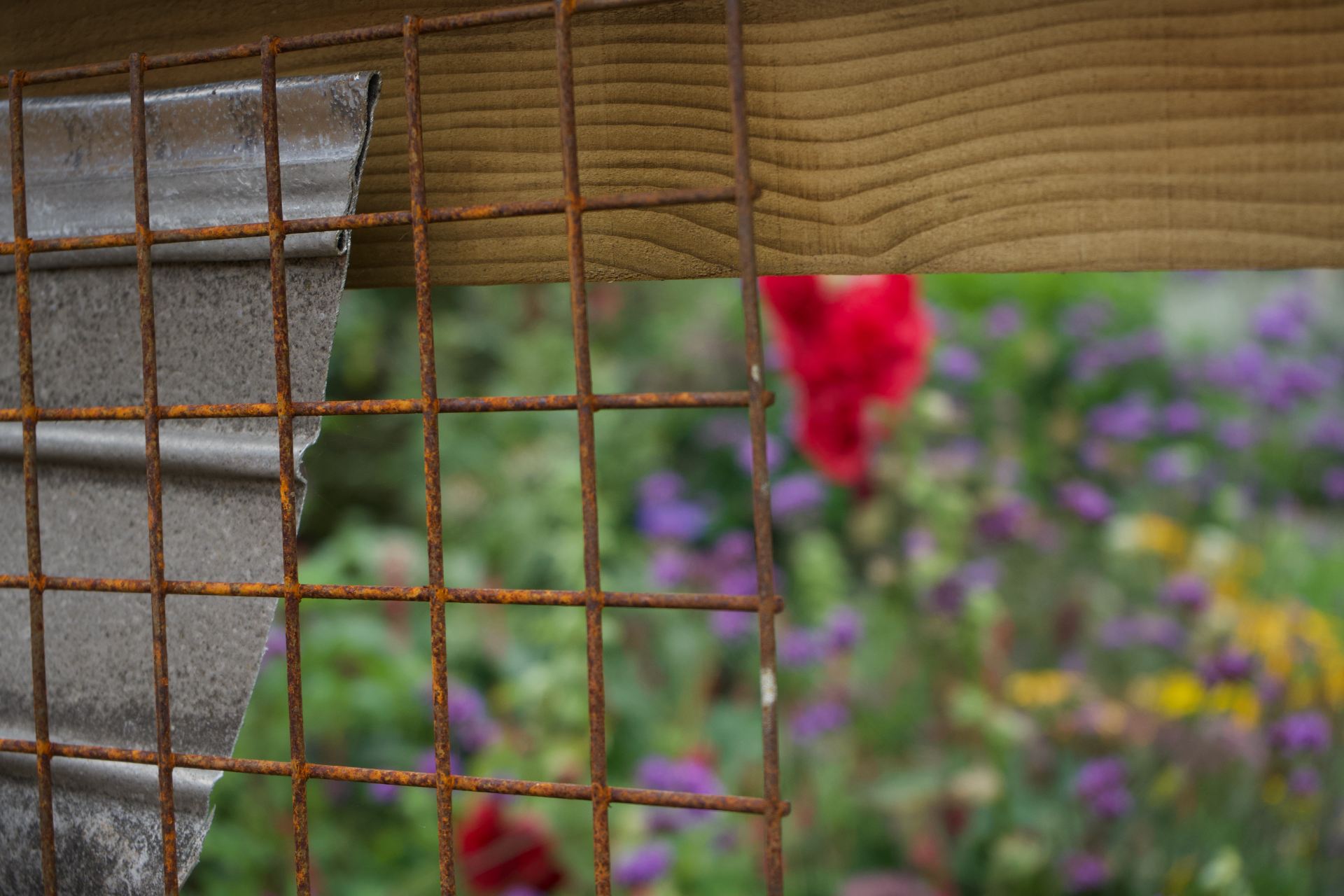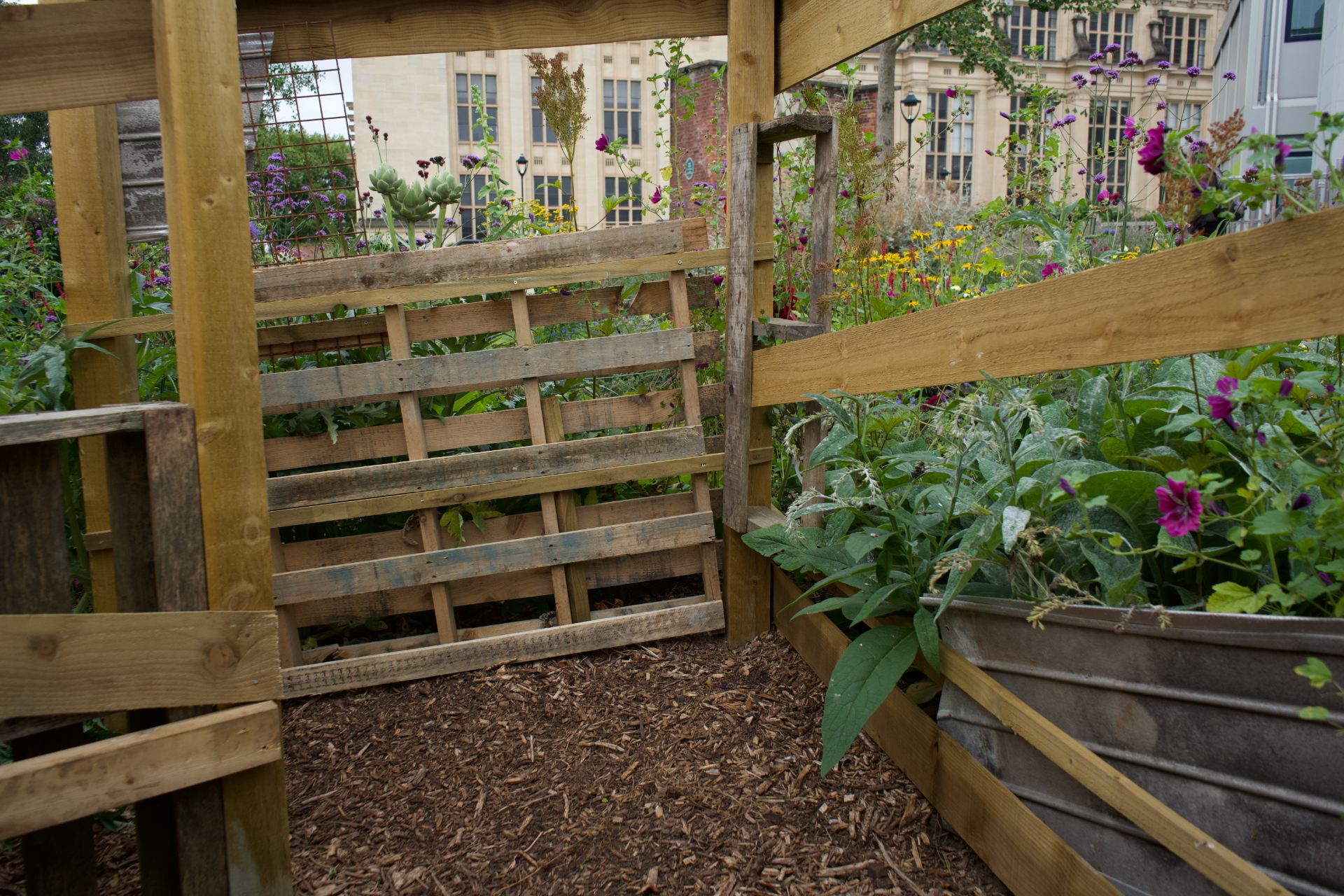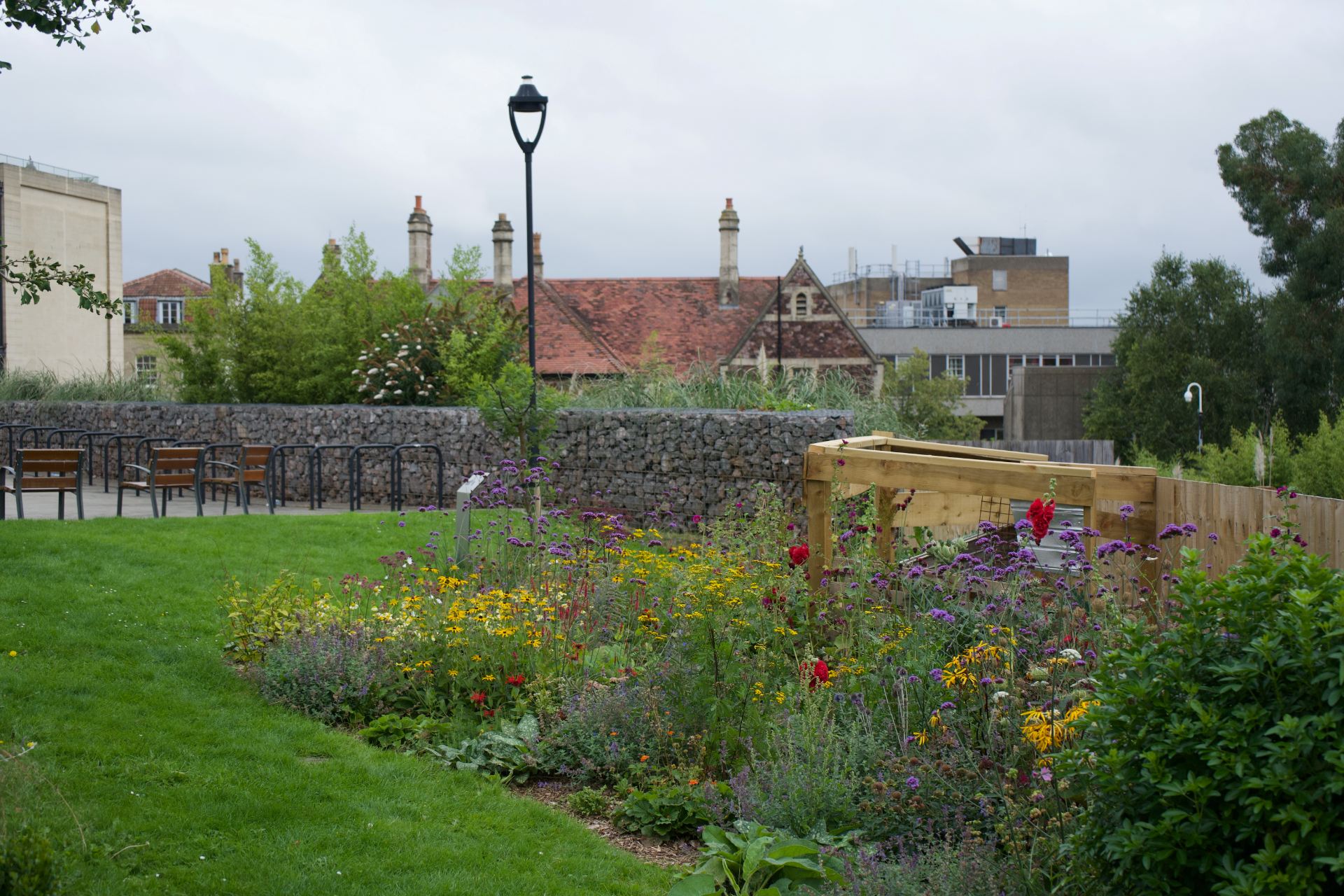We Are Not a Single Species, 2019
For this residency, multi- disciplinary artist Paul Hurley worked with human and nonhuman communities to explore the geographies, histories and possibilities of a new university campus within this inner city area of Bristol.
There are many things that connect us in this city – different worlds, experiences, identities and perceptions bridge the gaps between us. This project was designed to unpack this and introduce us to a new way of seeing our world.
As part of the residency the artist spent time around the University and at the Temple Quarter Enterprise Campus construction site. To capture the nonhuman perspective in these areas, his four-legged companion Barney donned a GoPro and set off exploring. Led by Barney’s nose, Hurley captured film footage he might never have chosen himself. Paul said “there were elements of a situationist dérive, an artistic drift around the city, unsure where we and the camera were being taken.”
Others were invited to collaborate in ‘walk and talks’ with a nonhuman of their choice – human participants included university staff and people living and working near Temple Quarter. Recording the conversations, they walked with a range of nonhumans from the weather and Carlo the cat to Siri and the plants of the University’s botanic garden.
We are not a Single Species, is an audio work and multi- screen film made with Paul Samuel White and human and non-human participants, which was exhibited at SPACE gallery, near the TQEC site in September 2019.
Hurley explained that “by combining the dog-filmed footage with a collage of audio from the walks, our expectations of looking at the city were disrupted.” In the exhibition, each visitor experiences a unique combination of sound and visual – reflecting the serendipity of the filming itself. An audio track of the ‘walk and talk’ conversations together with three screens showing individual videos are all different lengths, creating intersecting spirals of film instead of a loop.
We live in entanglements of human and nonhuman worlds, of pasts, presents, and many possible futures. My approach to the residency was to explore some of these, to tease out some of the tangled threads that connect different worlds to a new university campus in the city.
They operate like the layers of conversation, history and experience that accumulate in our attempt to articulate the world (or worlds) of Temple Quarter. These worlds, like us, are multiple, they are separate but entangled. We are not – and can never be – a single species.
(de)Bordering, 2021
In 2021 Paul Hurley was commissioned by the Brigstow Institute, alongside environmental artist Charli Clark, to collaborate with a team of academics to explore the politics of environmentalism. The project asked: How can we negotiate the politics of environmentalism – which can draw on ideas of invasive vs indigenous – and the politics of migration? How and why does language matter in policy debates over environment and migration?
The commission resulted in two hospitable plots within Royal Fort Gardens, created with and for migratory humans and nonhumans. The spaces serve as living classrooms for discussions between researchers, students, policy makers and publics. For more comprehensive information on this project and a documentary film made during the construction, please see the Bristow Institute website.
About Paul Hurley
Paul Hurley is a transdisciplinary artist-researcher working inside and outside of universities. He specialises in creating qualitative, participatory and artistic research, as well as public engagement and communication projects. While his roots are in the fields of Visual Culture and Human Geography, he also works on impact-led collaborations with colleagues in Theology, Biology, Veterinary Science, Medical Humanities, Nursing and Engineering.
His interests are in more-than-human worlds, gendered practices and identities, and in cultural knowledges and agency. Hurley has worked on projects about agri-environment policy, farmed animal welfare, infection prevention, meat-eating masculinities, and on GCRF work around environmentalism and antimicrobial resistance in the food chain.

